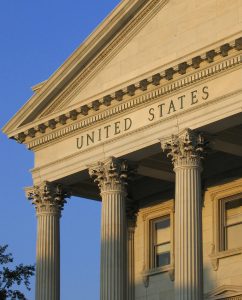Update: On February 9, President Trump signed into law the Bipartisan Budget Act of 2018. This new law retroactively renews the §179D deduction for 2017. Therefore, commercial building owners and primary designers may now claim the deduction for qualifying energy-efficient projects completed in 2017. At this time, however, Congress has not taken any action to extend §179D for 2018 or future years. Capital Review Group will keep abreast of Congressional activity, and we will post any further updates regarding the §179d deduction.
After months of Congressional inaction on the §179D tax deduction—which expired on December 31, 2016—a new bill introduced in the Senate has proposed renewing this important incentive through 2018 and significantly expanding its value for taxpayers. Named the Clean Energy for America Act, the bill was introduced on May 4 by Senator Ron Wyden [D-OR] and 21 co-sponsors and has been referred to the Committee on Finance. This sweeping piece of proposed legislation aims to strengthen and simplify the 44 existing energy tax incentives, many of which are too short-term to fulfill their intended purpose of advancing energy conservation goals in the U.S. Under the Clean Energy for America Act, the §179D deduction would be worth up to $4.75 per square foot for owners of new commercial buildings and up to $9.25 per square foot for owners of existing buildings.
Until its expiration at the end of 2016, §179D offered owners of new or existing commercial buildings a deduction of up to $1.80 per square foot for installing energy efficiency measures in a building’s envelope or lighting or HVAC systems. In the case of buildings owned by tax-exempt government entities, the owner may allocate the deduction to the “primary designer”—such as the architect, engineer, contractor, or energy consultant—of the qualifying improvements. Although the §179D deduction has lapsed, taxpayers still have a limited amount of time to claim it for past projects. Therefore, building owners and designers who have installed qualifying energy-efficient features should contact a tax professional as soon as possible.
If enacted, the Clean Energy for America Act would change this incentive in the following ways:
- Section 179D would be limited to energy efficiency measures in new construction. The Act proposes creation of a new provision, 179F, for retrofits in existing buildings.
- The 179D deduction would range from $1.00 to $4.75 per square foot. Taxpayers would be eligible for a $1.00 per square foot deduction for installing features that are 25 percent more efficient than the standards listed in ASHRAE 90.1-2016, and an additional deduction of $0.25 per square foot for every five percentage points over those standards. For example, features that are 30 percent more efficient than ASHRAE 90.1-2016 would qualify for a $1.25 per square foot deduction, features that are 35 percent more efficient would receive $1.50 per square foot, and so on.
- Under 179F, owners of existing commercial buildings would be eligible for a tax deduction of $1.25 per square foot for installing retrofits that reduce energy consumption by 20 percent over previous levels. They would receive an additional deduction of $0.50 per square foot for every five-percent reduction in energy usage over the 20 percent threshold, up to $9.25 per square foot.
- Under both 179D and §179F, 501(c) nonprofit organizations—in addition to governmental entities—would be permitted to allocate their deductions to primary designers.
- As before, energy efficiency measures would have to be certified by a third party using Department of Energy-approved software in order for the taxpayer to qualify for the deduction.
In the years since it was first enacted under the Energy Policy Act (“EPAct”) of 2005, the §179D deduction has created skilled jobs, served as a powerful incentive for building owners to choose sustainable features, and stimulated the national economy by allowing businesses that own commercial buildings to substantially reduce their tax burdens. For these reasons, Capital Review Group is a strong advocate of the Clean Energy for America Act and other bills that would extend and/or expand the §179D deduction.
The team at CRG stays updated on the latest news regarding the §179D deduction and other business tax incentives. Our experts are approved to certify §179D claims and can advise building owners and primary designers on the options available for minimizing their tax burdens through energy-efficient improvements. Contact us today to learn more or schedule a pro bono analysis!
(Sources: https://www.finance.senate.gov/imo/media/doc/Clean%20Energy%20for%20America%20Act%20-%20One%20Pager%20(002).pdf), https://www.congress.gov/bill/115th-congress/senate-bill/1068/text#toc-id50B49E0EC70C4BE69836146432985EA9).
